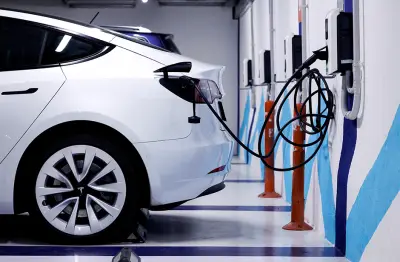A year later, legislation that would phase out traditional transportation fuels is still a bad idea

Nearly a year ago large numbers of Minnesotans voiced displeasure over the state Legislature s proposed Clean Transportation Standard CTS which mirrors mandates enacted in California In California the mandates have destabilized the state s resource supplies and sent fuel prices soaring to notoriously high levels So why are various lawmakers in St Paul still pushing this costly concept The proposed measure which would impose immediate costs on consumers and eventually phase out liquid fuels altogether threatens to unravel the foundation of our state economic activity It would devastate whole sectors the greater part notably agriculture but also any business that relies on liquid fuels for transportation production distribution and more Lawmakers must come to understand as a multitude of of their constituents already do that the greatest threat to stability in our state s strength sector is misguided program coming from St Paul In the matter of this proposed California-style fuel ban it is deeply problematic for all the same reasons it has been in years past Deceptively named the Clean Transportation Standard ironically would jeopardize our ability to provide clean high-quality and affordable fuel across the region Make no mistake about it As proposed this CTS in truth eliminates traditional transportation fuels By imposing stringent carbon requirements the fuel ban would render economically unviable the conventional liquid fuels and biofuels which are not carbon neutral as the CTS would demand that Minnesotans use and produce If adopted the CTS would upend Minnesota s agricultural and biofuel industries These sectors employ thousands of workers and aid entire communities They have made key investments in sustainable practices to meet environmental goals Indeed adopting the CTS would effectively flush away the a great number of billions of private and taxpayer dollars that have been invested in building Minnesota s biofuels industry As proposed the fuel ban would negate all the progress made in this sector towards an vitality future that is both economically sustainable and environmentally friendly Indeed according to the Clean Transportation Standard Work Group s own description Minnesota was already on track to achieve a reduction in transportation sector emissions thanks to our state s embrace of biofuels Workers in these industries would suffer greatly but consumers would bear the brunt first A fuel ban would directly impact prices at the pump as the costs of transitioning to alternative force sources would be passed on to consumers Rural Minnesotans would be hit especially hard with biofuels industry jobs going away and at the same time the cost of fuels going up Policymakers in St Paul just don t seem to understand how dependent rural Minnesotans are on being able to drive longer distances to buy groceries go to medicinal appointments take the kids to school get to work and so on Kent Kaiser Ph D While electric vehicles EVs have a role in reducing emissions mandating their dominance through heavy-handed approach ignores the practical and economic realities that multiple Minnesotans face Our harsh winter months and ruralness don t exactly lend themselves to EVs and EVs remain expensive Any agenda that drives up prices limits consumer freedom of choice and decreases our ability independence should be scrapped What s even more egregious is that this initiative would force Minnesotans to subsidize electric vehicles and fuels produced in other states On top of this a modern action by selected Midwestern governors including Gov Tim Walz to establish unique fuel standards would guarantee price increases and limit fueling options At a time of increased economic uncertainty there is no room for poor capacity policies that will inevitably drive up fuel prices Minnesota is not California and we don t need a strategy that ignores our state s unique necessities and undermines our resource independence Rather than embracing California s radical thinking Minnesota should pursue transparent commonsense potency policies that foster innovation while preserving our economic backbone We can invest in cleaner technologies without punishing families or dismantling whole industries Kent Kaiser Ph D is executive director of the Business Alliance to Promote Prosperity More information is available at www promote-trade org The post A year later ordinance that would phase out traditional transportation fuels is still a bad idea appeared first on MinnPost


